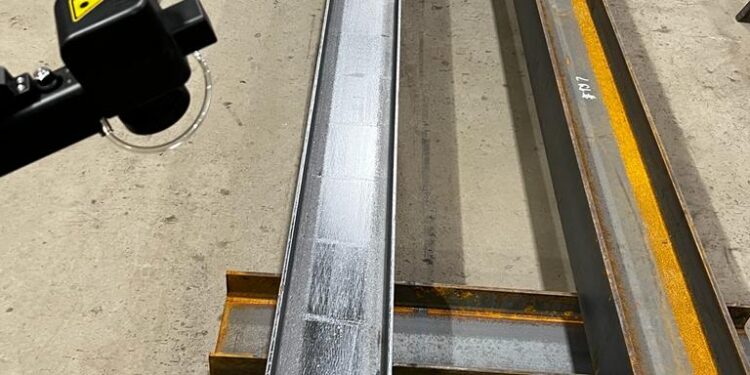Mill Scale, a byproduct of steel manufacturing, is a flaky surface that forms on the surface of steel during hot rolling processes. While typically seen as waste in metal fabrication, Mill Scale can actually be processed to increase efficiency and reduce waste in a metal fabrication operation.
One of the main benefits of processing Mill Scale is its potential to be recycled back into the steelmaking process. By treating and removing impurities from Mill Scale, it can be used as a raw material in the production of new steel. This not only reduces the amount of waste generated in metal fabrication but also lowers the cost of raw materials for producing steel. Additionally, recycling Mill Scale back into the steelmaking process reduces the need for mining and processing of new iron ore, which is a more sustainable approach to steel production.
Processing Mill Scale can also lead to an increase in efficiency in metal fabrication operations. By separating and treating Mill Scale, it can be converted into a high-quality iron oxide powder that can be used in various applications such as pigment production, cement manufacturing, and as a filler in plastics and rubber products. By repurposing Mill Scale into valuable products, metal fabrication companies can generate additional revenue streams and reduce the amount of waste that ends up in landfills.
Furthermore, processing Mill Scale can improve the quality of finished steel products. Mill Scale contains iron oxide, which can act as a filler material during the steelmaking process. By incorporating treated Mill Scale into the steel production process, it can improve the chemical composition and properties of the steel, resulting in higher-quality finished products. This can lead to increased customer satisfaction and better market competitiveness for metal fabrication companies.
In addition to its environmental and efficiency benefits, processing Mill Scale can also have economic advantages for metal fabrication operations. By converting Mill Scale into valuable products, metal fabrication companies can diversify their revenue sources and reduce their dependence on raw materials. This can help to stabilize profitability and provide a more sustainable business model for metal fabrication companies in the long term.
Overall, processing Mill Scale can be a beneficial practice for metal fabrication operations. By recycling Mill Scale back into the steelmaking process, increasing efficiency, and generating additional revenue streams, metal fabrication companies can reduce waste, improve product quality, and enhance their overall sustainability. With the right processing techniques and technology, Mill Scale can be a valuable resource that drives efficiency and innovation in the metal fabrication industry.
For more information visit:
ALFA LASER
https://www.alfalaser.ca/
+1 4389405020
190 Rue Joseph-Carrier #108, Vaudreuil-Dorion, Quebec J7V 3V1
ALFA LASER GreenBlast™ Inc.
Founded by two laser and photonics experts, ALFA LASER GreenBlast™ Inc. is a Canadian manufacturer specializing in industrial laser cleaning systems.
Our cutting-edge technology offers several advantages over traditional cleaning methods:
Environmentally Friendly: Laser cleaning is the most eco-friendly technique, minimizing waste and reducing environmental impact.
Energy Efficient: Our laser systems are energy-efficient, making them a sustainable choice for various applications.
Precision Cleaning: ALFA LASER machines can remove rust, mill scale, paint, contaminants and residue without damaging the substrate.
Versatile Applications: Whether you need integration into your production line, robotic workstations, or handheld mobile lasers, we’ve got you covered.
Canada’s No. 1 Choice: Our commitment to quality, durability, and innovation has made us the preferred choice for laser cleaning solutions in Canada.
Boost your industrial cleaning efficiency with ALFA LASER. Contact us today at +1 438-940-5020 to explore the power of laser technology!















